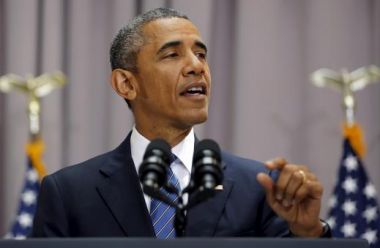Top US scientists and engineers support President Obama's nuke deal with Iran

Twenty-nine US scientists, including Nobel Prize winners and nuclear experts, have expressed their support to the historic nuclear deal struck by world powers led by the US with Iran.
In a letter to US President Barack Obama, top scientists and engineers from different universities congratulated the chief executive on Saturday, saying the accord will advance peace in the Middle East.
"We consider that the Joint Comprehensive Plan of Action (JCPOA) the United States and its partners negotiated with Iran will advance the cause of peace and security in the Middle East and can serve as a guidepost for future non-proliferation agreements," read the letter.
The scientists described the nuclear deal as "an innovative agreement, with much more stringent constraints than any previously negotiated non-proliferation framework."
They believe the restrictions imposed by the nuclear accord would result to delaying Iran's enrichment of uranium to develop a weapon.
"A key result of these restrictions is that it would take Iran many months to enrich uranium for a weapon. We contrast this with the situation before the interim agreement was negotiated in Lausanne. At that time Iran had accumulated enough 20 percent enriched uranium that the required additional enrichment time for weapons use was only a few weeks," they said.
The backing of the agreement by the scientific community comes at a crucial time when Obama is being criticised not only by Republicans but fellow Democrats as well for the nuclear deal.
Sen. Chuck Schumer (D-NY), a top Democrat in Congress, said there are "serious weaknesses" in the accord, including possible delays in detection of radioactivity and that the US cannot demand inspections.
Meanwhile, Iran's military chief, Maj. Gen. Hassan Firouzabadi also reportedly backed the nuclear deal with the US and other world powers, saying the accord has benefits that opponents refuse to see.
"The armed forces have the most concerns about the effect of the deal on Iran's defence capabilities ... but this agreement and the UN Security Council resolution have many advantages that the critics ignore," said the general, who is a close ally of Supreme Leader Ayatollah Ali Khamenei.











